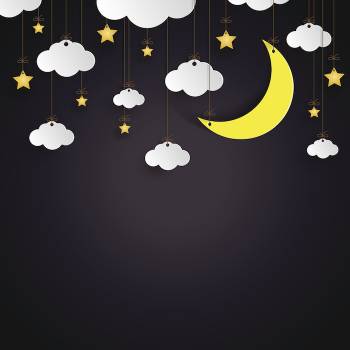Better Health: Eat Well to Sleep Well
 Proper rest and nutrition are critical to health. Chloe Ong, Senior Dietitian at Parkway Cancer Centre, explains how they are linked.
Proper rest and nutrition are critical to health. Chloe Ong, Senior Dietitian at Parkway Cancer Centre, explains how they are linked.
Have you ever had trouble sleeping after a heavy meal? Or lost your appetite because you have not been sleeping well?
It’s not surprising: There is a strong connection between sleep and how we metabolise food. When and what we eat can affect our sleep patterns.
If we eat too near bedtime, for example, our body will still be digesting the food. Food and gastric juices can press onto the bottom of our oesophagus, which may cause acid reflux or heartburn, hence making sleep difficult.
So, try not to eat a heavy meal three to four hours before you sleep, and avoid food that is difficult to digest or those that may cause acid reflux, as indigestion makes it harder for the body to relax.
Ultimately, eating well can help you to sleep well, and vice-versa.
Quality sleep is essential to the body in many ways. It improves brain functions, which means you will be able to focus better, learn better, and make better decisions. It improves your emotional well-being as well as physical health. Insufficient sleep can lead to obesity, heart problems, metabolic syndrome, and decrease your immunity to illness.
Here’s some strategies to help you eat better to sleep better.
Go light
What to eat and drink
At dinner, try to eat something light and easy to digest.
Milk contains tryptophan. This is the precursor of serotonin, a neurotransmitter, and melatonin, which will help you to relax and sleep better.
Turkey and egg white are also rich in tryptophan. For example, have a turkey sandwich for dinner or light supper.
Chamomile tea, which is caffeine free can reduce anxiety and initiate sleep. It contains the antioxidant apigenin, which binds to your brain receptor and provides a calming effect.
Get your vitamins
Vitamins and minerals to help you to sleep
Vitamin D: Lack of vitamin D has been linked to insufficient sleep. You can get it from sunshine and foods like egg yolk, oily fish and some fortified dairy products.
Iron: Deficiency can lead to restless leg syndrome, thus affecting sleep. Sources of iron include red meat, whole grain products, green leafy vegetables as well as nuts and beans.
Calcium: This helps the brain use the amino acid tryptophan to manufacture melatonin, which induces sleep.
Magnesium: This mineral can help reduce the stress hormone cortisol and help our muscles relax. Foods high in magnesium include nuts and seeds, green leafy vegetables and fish.
Vitamins B3, B5, B6, B9 and B12: These also help the body to regulate tryptophan, which in turn regulates melatonin.
Melatonin: Usually, naturally produced in our body, melatonin helps to regulate our sleep. It is sensitive to light. Small amounts can be found in food grains, fruits and vegetables. You can also get melatonin supplements, which are usually used to treat jet lag.
Exercise!
What else can help you to sleep
Exercise can increase serotonin levels, which can help you to sleep better. But try to do this in the morning or earlier in the day, as exercising close to bedtime can make sleeping difficult.
Massage, which can also boost serotonin levels.
Stay away from electronic devices one to two hours before bedtime.
No coffee!
What to avoid
Heavy meals near bedtime: If you need to eat, choose something light or liquid that is easily digestible. Try not to eat three to four hours before bedtime.
- Food that is high in fat, such as fatty red meat and deep fried dishes.
High-fat desserts like ice cream. - Spicy and sour food, which may cause acid reflux and heartburn.
- Caffeine, which can stay in the bloodstream for up to six hours. It depends on an individual’s response to caffeine, some may be more sensitive to caffeine than others. Do take note that caffeine is found not only in coffee, but also in tea, soda drinks, cocoa and energy drinks.
Nicotine, which is a stimulant that makes sleeping difficult.
Alcohol, which may help you to fall asleep faster but will interrupt sleep during the second half of the night. Limit yourself to one to two servings per day.
Better Health: Eat Well to Sleep Well originally appeared on Parkway Cancer Centre and has been republished with permission
Further Reading
The article above is meant to provide general information and does not replace a doctor's consultation.
Please see your doctor for professional advice.
